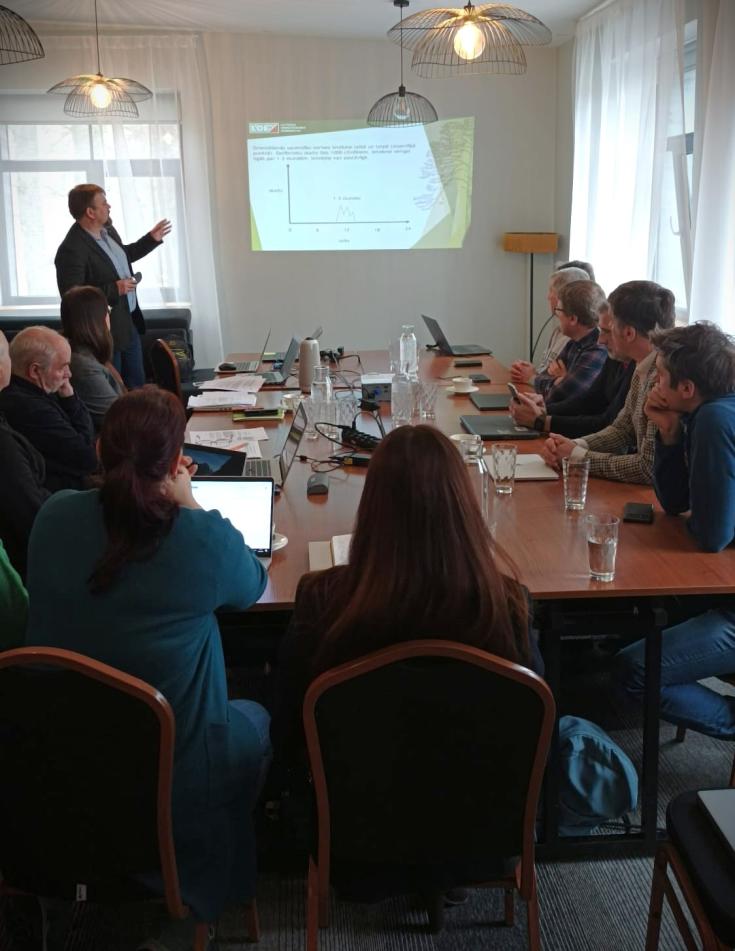Balancing Orienteering and Nature Conservation
On February 28, the Vidzeme Planning Region, as part of the CIBioGo project, organized a regional stakeholder meeting in Līgatne. The meeting focused on reviewing and updating guidelines for minimizing the environmental impact of orienteering competitions and improving event planning in protected areas.
The discussion brought together experts from the Nature Conservation Agency, the Latvian Orienteering Federation, and representatives of orienteering clubs. The goal was to create a shared understanding of environmental impacts and reduce administrative burdens while ensuring nature conservation.
Orienteering is one of the largest amateur sports in Latvia, with approximately 18,000 participants of all ages participating each year, primarily organized into voluntary clubs. Many competitions are held in protected areas due to their high-quality forests and suitable terrain, especially in the Vidzeme region, which hosts numerous orienteering events annually.
Based on lessons learned during the CIBioGo peer-review visit to Slovenia, the meeting emphasized the importance of early stakeholder engagement to foster mutual understanding and facilitate conflict resolution. The Slovenian State Forest experience demonstrated that involving all parties at the beginning of the process helps prevent disputes and creates more effective, long-term solutions for event management in nature.
The discussion resulted in key proposals, including reducing bureaucratic barriers to approving regular weekly orienteering series. Participants also agreed on an action plan and deadlines, ensuring that the new guidelines would be practical, adaptable, and ready for implementation in the upcoming orienteering season.

